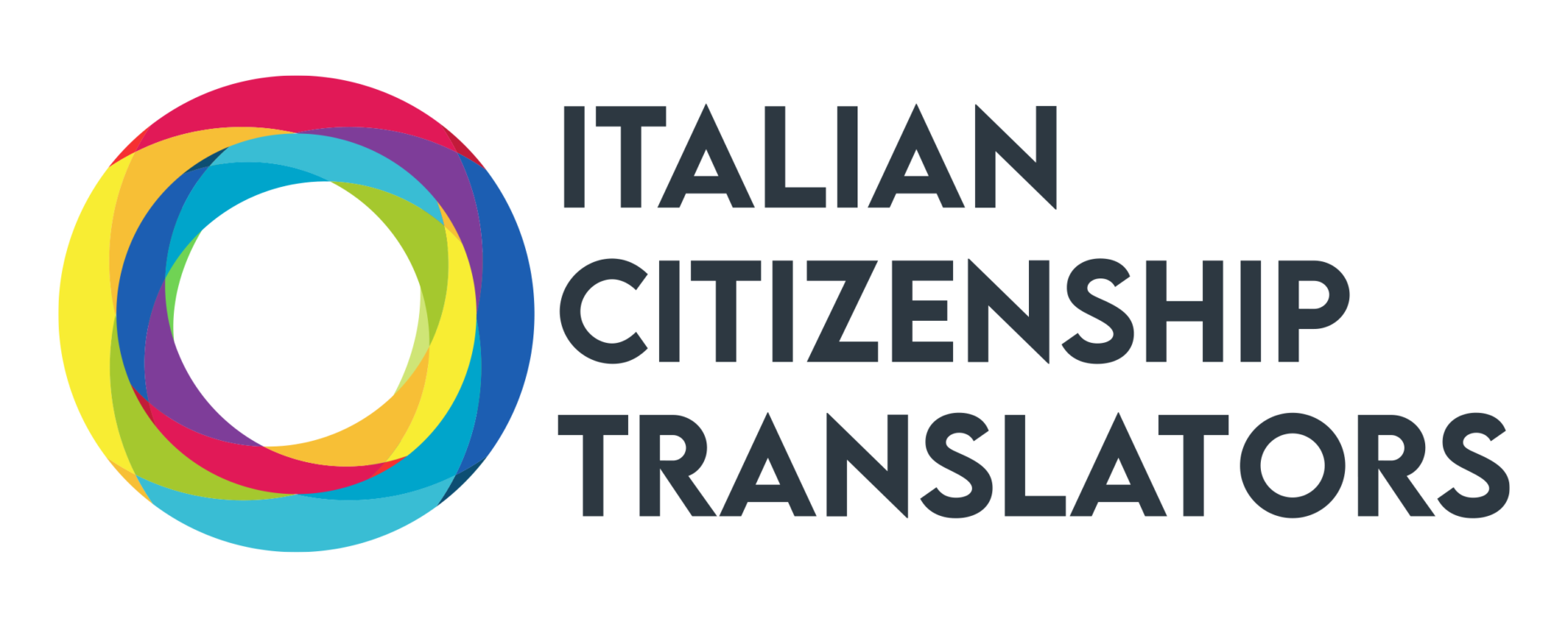
What is the role of a translator in a citizenship application and real estate transaction?
The US Foreign Service Institute classifies Italian as a “tier one” language and it claims that it is one of the easiest languages for a native English speaker to learn. In fact, words in Italian are pronounced the way they are written and the Italian alphabet is the same as the English alphabet, though there are more accents in Italian. Notably, individuals who are already fluent in another Romance language often find it easy to pick up Italian as many words are similar to other Romance languages such as French or Spanish, for instance.
Indeed, while learning Italian can be an exciting task, if you are not familiar with the language many of the documents involved in a citizenship application or a real estate transaction might look daunting as the terminology used is quite complex. Therefore, in these cases, the role of a professional translator is crucial.
This article will unpack the role and the importance of a professional translator in a citizenship application and real estate transaction by briefly outlining the main phases involved in both processes.
Applying for Italian citizenship: why do you need a translator?
If you are eligible to apply for Italian citizenship by descent, depending on your specific case, you might be eligible to apply via an Italian consulate, via a municipality or a court in Italy. In order to apply you will need to collect all your family’s vital records, legalize them with Apostilles and translate them into Italian. The type of translation needed is dependent on the path you are pursuing to apply for Italian citizenship, however, before we dig deeper into these differences, there are some general guidelines that apply to all translations. In fact, these must be carried out professionally; in other words, the layout of the original document and the corresponding translation must match, and all the information on the original vital records must be translated accurately.
Applying via an Italian consulate in the U.S.
Generally, Italian consulates in the U.S. require an applicant’s vital records to be translated into Italian except for the naturalization records pertaining to the ancestor through whom the applicant is claiming citizenship. Vital records issued by any EU member state outside of Italy do not need to be translated if they are issued in a multilingual standard form.
If the records are issued in the U.S., the consulates generally accept uncertified translations. This is due to the fact that the consular personnel are required to speak both Italian and English, thus the language of the country in which the consulate is located. Furthermore, the fee paid to the Italian consulate to process a citizenship application also includes the cost for the consulate to certify the translations.
Most Italian consulates in the U.S. do not require the apostilles on the applicant’s vital records to be translated into Italian. Nevertheless, it is always advisable to check the specific requirements on the website of the consulate to which you are applying as some consulates require certain types of translations to be certified. This is the case for the Italian consulate in New York, for instance, which at the time of writing this article requires applicants to provide certified translations for legal documents, such as divorce decrees or legal name change certificates. In this case, a translator may certify the translations of the records before a U.S. public notary.
Finally, another scenario entails providing an Italian consulate in the U.S. with vital records issued by a foreign country such as Argentina, for instance. In order for the Italian consulate in the U.S. to accept the documents, you will need to certify the translation from Spanish to Italian. In this case, the most common method used is to ask the Italian consulate in Argentina to certify the translations prior to submitting the documents to the Italian consulate in the United States.
Applying via an Italian consulate outside of the U.S.
On the other hand, if you apply via an Italian consulate outside of the U.S. and your vital records are issued outside of that country, you will need to ask a translator to certify the translations of all your vital records. The reason for this is that although the consular clerks might speak English, officially, they are required to speak Italian and the language of the country where the consulate is based, therefore they cannot verify that the translations into English are accurate.
Depending on the specific consulate’s requirements, translations may be certified by a professional translator before a public notary, or they may be sworn in a court in Italy. The main difference between certified translations and sworn translations is that while the former have no legal value because they often entail a self-certification statement signed by the translator before a public notary, the latter (traduzioni asseverate in Italian) entail an official oath signed by the translator before a court or the Justice of the Peace in Italy, and thus have legal value and are subject to a stamp duty.
It is worth mentioning that translations can also be sworn before a notary in Italy. A notary (in Italian notaio) is a public officer and a specialized counselor in estate contracts, family law, wills law and other judicial maters.
Applying via a municipality or a court in Italy
Finally, if you apply via a municipality in Italy or via the court system (if you have a 1948 case1) you will need to translate all your vital records into Italian (including your ancestor’s naturalization records) and the corresponding Apostilles. As previously mentioned, translations can be sworn by a professional translator before a notary or a court in Italy. Most courts in Italy only accept sworn translations to be provided by a translator who is registered in a list of authorized translators held by the court.
Therefore, the role of a translator in a citizenship application is of the utmost importance as the translated documents are used to determine an individual’s right to apply for Italian citizenship. As a recap, translations may be certified by an Italian consulate abroad, by a professional translator before a notary public in the U.S., or they may be sworn by a professional translator before a notary or a court in Italy.
Purchasing a property in Italy: why do you need a translator?
Individuals who obtain Italian citizenship often decide to buy a property in Italy and the role of a translator is also crucial in this process. This is due to the technical and complex legal language used in a real estate transaction and in all the documents involved, such as the preliminary contract of sale (contratto preliminare di vendita or compromesso), the due diligence report, the formal offer (proposta di acquisto) and the final deed of sale (atto di vendita or rogito notarile), among others. In particular, an understanding of the legal terminology involved in the real estate purchase process is vital because even the smallest mistake may lead to stalls or issues in the real estate transaction. For example, when signing the final deed of sale before the notary in Italy, an interpreter must be present by law if the buyer is not fluent in Italian. Finally, an accurate translation of all the legal documents regarding the transaction is fundamental because in the event of litigation the Italian version of the deed will prevail.
What are the main steps in purchasing a property in Italy?
Firstly, if you do not reside in Italy and you have not identified the property you would like to purchase, it is worth relying on the services of a real estate law firm which can help you to find the property that best suits your needs. When you find one, the firm will schedule a viewing and they will review the legal status of the property by consulting the appropriate records and land registries. During this phase they will carry out due diligence on the property and if everything is in order and you decide to make an offer, they will draft a formal offer for you. If the seller accepts the offer, they will draft the preliminary contract of sale.
If you cannot travel to Italy to complete the purchase process, you can sign a Power of Attorney and delegate a trusted person or the real estate law firm to represent you and sign the final deed of sale on your behalf. In this case, they will draft the Power of Attorney, send it to the notary in Italy for approval, translate it into English and send it to you. You will then need to notarize the Power of Attorney and send it back to Italy where a professional translator will translate the notarized statement and legalize the translation in court. Once this has been done, the person you have appointed can sign the final deed of sale on your behalf.
Final remarks
In conclusion, as this article has sought to analyze, when purchasing a property, most of the language used in the official documents might be difficult to understand, therefore, the role of a professional translator is crucial in order to have a clear understanding of the purchase process, as well as to make sure that it runs smoothly.
Similarly, the role of a professional translator is also important in a citizenship application as the translations of all the records collected must comply with the requirements of the Italian authority which is responsible for processing your application.
If you would like more information about the topics discussed in this article feel free to contact us, we will be happy to help you!
1If there is a woman in your Italian lineage who gave birth to her child prior to January 1, 1948, you might not be eligible to apply for citizenship via an Italian consulate or municipality in Italy, but you might be able to apply via the court system instead. This is due to the fact that prior to January 1, 1948 Italian women could not pass their citizenship to their children because they did not have the same rights as men. This changed when the Italian constitution came into effect on January 1, 1948 thus from that moment women were able to pass their citizenship to their children. Women’s unfair treatment is now considered to be unlawful thus if you have a 1948 case you can petition the court in Italy and apply for the recognition of your right to Italian citizenship.
